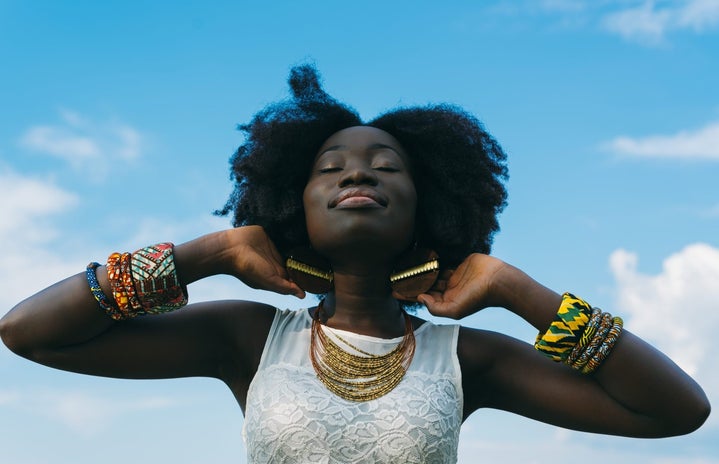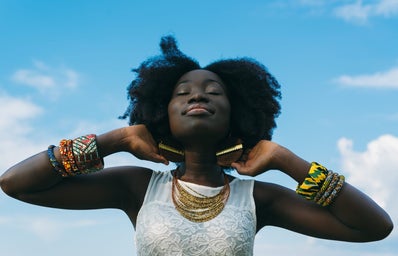If you had asked me what I thought about mullets a few years ago, I probably wouldn’t have said anything favorable. Yet, looking at the strands of curls growing past my shoulder and the bunching up in the back makes me happy. My hair doesn’t let me forget about my Afro-Caribbean roots.
I have been asked a lot of questions about my identity, some of which include:
“Are you Black?”
“What’re you mixed with?”
“Are you sure you’re not Egyptian?”
“I love your caramel skin.”
I was born in the Dominican Republic and therefore have African, Spanish, and Taino ancestors. The term Taino refers to the indigenous peoples of the Caribbean, who were at one point seen as commodities by conquistadors justifying their travels when they could not find gold.
I have never been reluctant to claim my African roots. I wish I could point out the rich African country that gave birth to my predecessors but the truth is I have no idea.
Despite this, I’ve always struggled claiming that I am “Black” or African American even though I know it refers to “Any of the Black racial groups of Africa.” I fit the category and I always check the box on official documents with pride but my mind likes to think the term refers only to descendants of Africa living in the United States.
Even though the Dominican Republic is in Central America I think most people limit the term “American” to refer to the United States.
Even though my skin color is brown, my life experiences are categorized by Hispanic culture. Even though Black people in the United States are incredibly diverse, it feels wrong to say I am African American because I’ve experienced the world through Hispanic lenses instead. This is convoluted though because Hispanic people are also distinct.
And that’s just where the confusion begins.
I have heard Dominicans say they are not Black. I have heard my people reject the term with a disgust that baffles me. People go so far as to use the term as an insult in general.
As a kid I despised whenever people told me that I had “bad hair” because my curl pattern is tight and hard to brush through when dry. My sister is the one with the “good hair” because it is softer and less “kinky.”
Kinky is a synonym of the words frizzy and nappy. The word kinky also refers to eccentric sexual practices. It’s ironic because of the stereotype that exists that Hispanic women are “feisty” and Black women are sex-driven. Both groups are typically associated with that kind of hair.
My hair could get called kinky by borderline racist people within my culture but I could get called kinky due to stereotypes about my race, ethnicity and even nationalities. Adding onto that list, the fact that I’m a woman means all the identities I’m assigned seem to carry the notion that I am to be dominated.
My hair reminds me of resilience. It is another reminder of all my favorite traits about myself including my willpower and protectiveness. The way the coils frame my face parallels a lion. Seeing women with their afros in books, movies, and/or real-life fills me with a sense of pride. Internally I want to scream, “We did it.”
We broke down the barrier barring us from wearing our hair down the first time an African woman stepped into work and refused to tie it up. Somehow, we’re still fighting negative perceptions but we’re not giving up.
I’m not wild because of my demographics, but I am strong because of them. If anything, my hair is proof that I belong to a group of people who refused to say die.
In the end, all my identities proclaim that I am not meant to be subjugated by anyone and I get a reminder of that every time I look at my unapologetically Afro-Caribbean hair.

